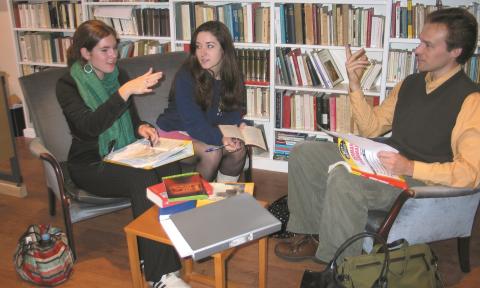The Sub-faculty of Portuguese is a dynamic centre for teaching and research about the Portuguese-speaking world and is the only independent Portuguese department in the UK. Portuguese can be studied from scratch or post A-level in Modern Languages degrees and in Joint Schools (see here).
We have a dedicated centre for Portuguese language teaching funded by the Camões Institute in Lisbon.

Undergraduate Studies

Graduate Studies

Research